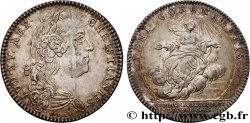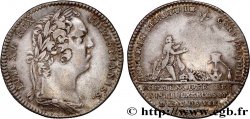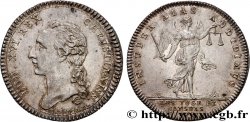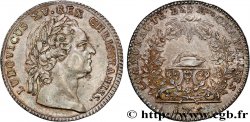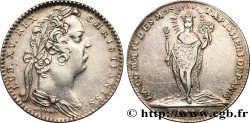fjt_072821 - CORPORATIONS Jeton Ar 30, marchands de Rouen 1719
Not available.
Item sold on our e-shop (2011)
Price : 95.00 €
Item sold on our e-shop (2011)
Price : 95.00 €
Type : Jeton Ar 30, marchands de Rouen
Date: 1719
Metal : silver
Diameter : 30,5 mm
Orientation dies : 6 h.
Weight : 9,87 g.
Edge : cannelée
Coments on the condition:
Exemplaire superbe avec de petites traces de circulation et de manipulation mais qui conserve son brillant d’origine. Bon centrage sur un flan assez épais
Catalogue references :
Obverse
Obverse legend : LUDOVICUS XV. D. G. FRAN. ET NAV. REX..
Obverse description : Buste drapé et cuirassé de Louis XV à droite [n° 275] ; non signé.
Obverse translation : (Louis XV, par la grâce de Dieu, roi des Francs et de Navarre).
Reverse
Reverse legend : AMICO FOEDERE IUNCAT. ; À L'EXERGUE EN TROIS LIGNES : LA REUNION DES MDS./ DE ROUEN EN. 1706/ 1719..
Reverse description : La Paix, tenant un rameau d'olivier sous le soleil de la main gauche et serrant la main de la Justice qui tient une balance de la main gauche, l’agneau pascal entre elles.
Reverse translation : (Il [l'agneau] les lie par un traité d'amitié).








 Report a mistake
Report a mistake Print the page
Print the page Share my selection
Share my selection Ask a question
Ask a question Consign / sell
Consign / sell
 Full data
Full data